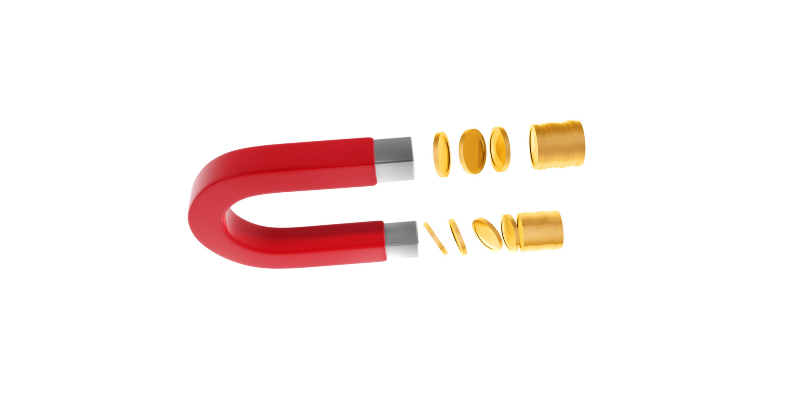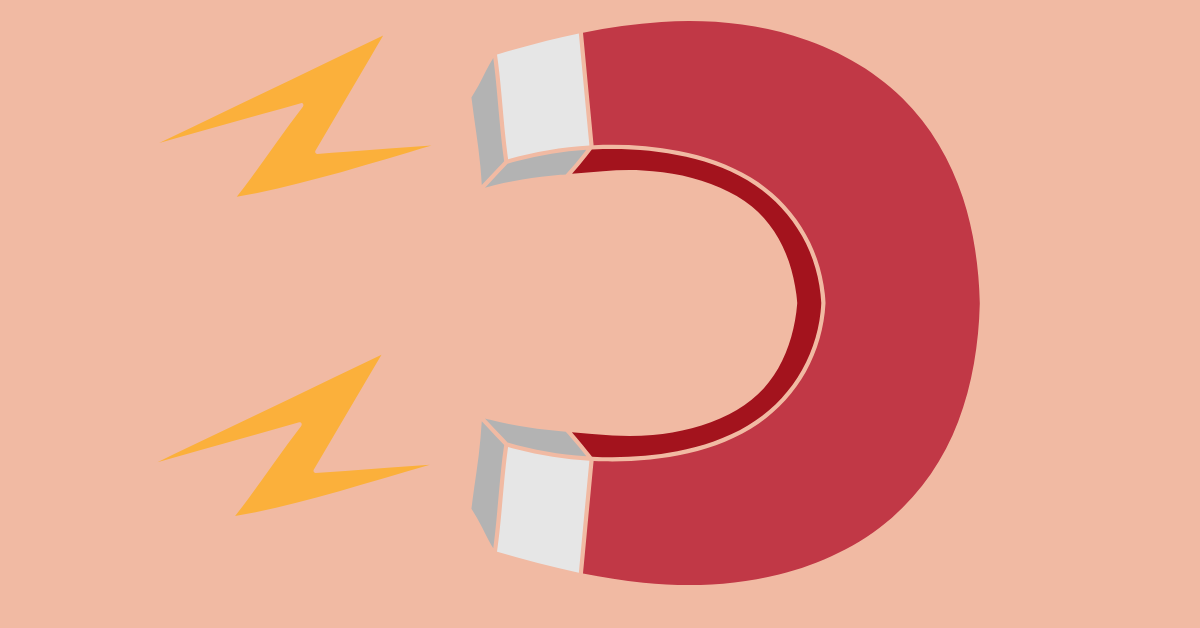When looking at gold coins and jewelry, one may wonder if they could stick to metal. Being a valued metal, researchers have studied gold to gather information about its properties on macro and nano-scale.
Coming to the question at hand, is gold magnetic? A simple answer would not quite cut it. Follow along to know more about the magnetism of gold.
Does Gold Stick to a Magnet?
In its purest form, gold can not stick to a magnet. It is, not at all, attracted to the magnetic fields that you come across in daily life.
Gold will only be slightly magnetic under a massive magnetic field. For practical purposes, pure gold is not attracted to magnets.
On the other hand, the alloy of gold containing 80% gold and 20% iron or nickel could stick to a magnet. The gold alloy may magnetize all on its own when placed in an extremely cold climate.
Gold jewelry only responds to magnetic pulls if they have other metal components in addition to gold.
Pure gold is malleable, dense, soft, and non-magnetic. Moreover, the magnetic properties of gold depend on the metals and alloys used.
To clarify, if the gold is not attracted to a magnet does not mean it’s pure gold. Other non-magnetic metals like aluminum, lead, or copper are part of the composition.

Can low-karat Gold Stick to a Magnet?
It is possible for white gold, 10k gold, 14k gold, and 18k gold to have some magnetic properties. Low-karat gold has a considerable percentage of other metals or alloys, such as silver, copper, nickel, or palladium.
Percentage of each type of metal and alloy influences the magnetic properties of the gold. In short, gold jewelry is a mix of gold and other metals, therefore, the magnetism of gold is dependent on the metal composition.
Can You Make Gold Magnetic?
In a perfect situation, pure gold does not contain any magnetic properties and should not be attracted to a magnet. However, it is safe to say that impure gold contains some degree of magnetism.
All things aside, you can temporarily influence pure gold’s behavior towards magnets. Pure gold can become slightly magnetic when placed in a strong magnetic field. However, it is not common to come across such strong magnetic fields in our daily lives.
Why is Gold Non-Magnetic?
According to science daily research, Each gold atom contains 118 neutrons, 79 electrons, and 79 protons. It is the least reactive metal and excels in electric conduction.
To understand why gold is not magnetic, you first have to understand what makes a material magnetic. Magnetic properties stem from electrons and their distribution in the configuration.
Every existing metal has a specific number of electrons, with the electrons nearest to the atom’s nucleus having the lowest energy and the outermost electrons having the highest energy.
The unpaired electrons in the outer shell are responsible for the magnetic properties of the metal. Iron has four unpaired electrons in the outer shell, making it highly reactive to magnetic fields.
In contrast, gold only has one unpaired electron and tends to have both paramagnetic and diamagnetic properties that cancel out each other’s effects. It makes the gold non-magnetic and stays inert when you apply a magnet.
Conclusion
The science behind the magnets is a bit complex, to cut long story short, pure gold is non-magnetic and does not react to the magnetic field generated by the magnets. A blend of magnetic metals like iron and nickel with gold may make it slightly magnetic.
However, just because the gold is non-magnetic does not mean it is pure, it could simply mean the presence of non-magnetic metal in the composition.
